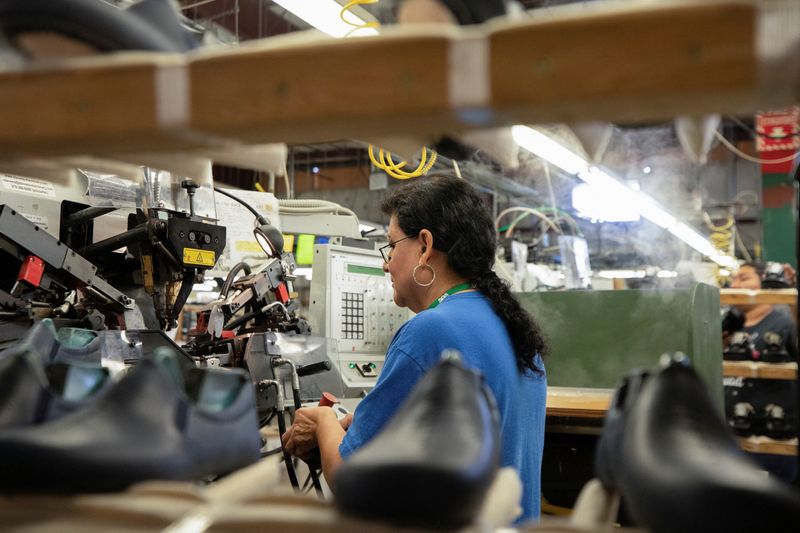WASHINGTON (Reuters) - U.S. manufacturing stabilized in January amid a rebound in new orders, but inflation at the factory gate picked up.
The Institute for Supply Management (ISM) said on Thursday that its manufacturing PMI increased to 49.1 last month from a slightly downwardly revised 47.1 in December. It was the 15th straight month that the PMI stayed below 50, which indicates contraction in manufacturing. That is the longest such stretch since the period from August 2000 to January 2002.
Economists polled by Reuters had forecast the index dipping to 47.0 from the previously reported 47.4. The ISM revised the series going back to 1948.
According to the ISM, a PMI reading below 48.7 over time indicates a contraction of the overall economy. But the ISM and other factory surveys have exaggerated the weakness in manufacturing, which accounts for 10.3% of the economy.
Production at factories contracted a modest 0.6% from the fourth quarter of 2022 through the fourth quarter of 2023, reversing the gains in the prior year, according to data from the Federal Reserve. Spending on goods accelerated last year, contributing to the economy's 2.5% growth.
The U.S. central bank left interest rates unchanged on Wednesday. Federal Reserve Chair Jerome Powell, in a sweeping endorsement of the U.S. economy's strength, said that interest rates had peaked and would move lower in coming months,
The ISM survey's forward-looking new orders sub-index rebounded to 52.5 last month from 47.0 in December.
Production at factories improved slightly, with the sub-index coming in at 50.4 from 49.9 in December. With orders picking up, goods inflation is stirring after months of deflation. The survey's measure of prices paid by manufacturers increased to 52.9 from 45.2 in December.
The survey's measure of supplier deliveries rose to 49.1 from 47.0 in the prior month. A reading below 50 indicates faster deliveries. The rise could be reflecting delays caused by winter storms. Attacks on cargo vessels in the Red Sea by Yemen-based Houthi, which have forced shipping companies to avoid the route through the Suez Canal, could also disrupt supply chains.
Factory employment remained subdued. That is however, unlikely to impact expectations for solid job growth in January.

According to a Reuters survey of economists, manufacturing payrolls likely increased by 5,000 jobs in January after rising 6,000 in December. Overall nonfarm payrolls are expected to have increased by 180,000 jobs last month after advancing 216,000 in December. The unemployment rate is forecast rising to 3.8% from 3.7% in the prior month.
The government is scheduled to publish its closely watched employment report for January on Friday.